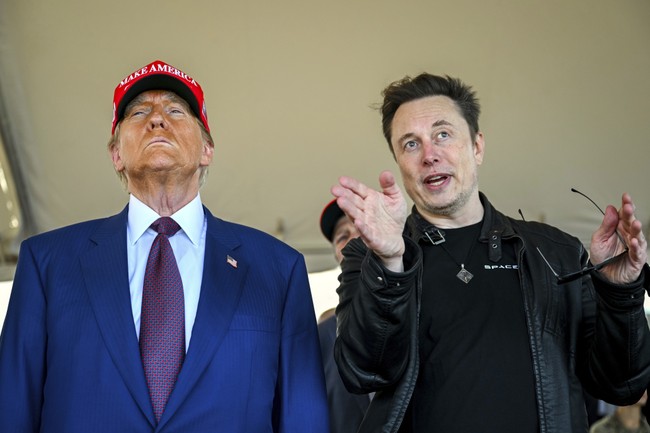DOGE vs DEI (and the ACLU)
This post was originally published on this site

How much does the federal government spend on Diversity, Equity and Inclusion efforts each year? Apparently no one knows because there’s no requirement to collect or report such information. We do know it adds up to tens of millions of dollars.
Advertisement
Price tags for DEI efforts vary widely across the government, but clues can be found in the amount of money agencies have publicly requested as part of the appropriations process.
HHS, for example, requested $113 million in its FY 2024 budget for “training for diversity” in the health workforce. That’s up from $102 million in 2023 and $94 million in 2022. The Department of Labor’s 2024 budget request included $515,000 to hire two full-time employees and provide for the necessary resources to “support diversity, equity, inclusion, and accessibility (DEIA) program and training initiatives.”
At the Department of Agriculture, to “establish The Diversity, Equity, and Inclusion office,” it requested $3 million that same year. In a more than 5% increase from FY 2023, the State Department requested $73.6 million for DEI for 2025.
In its FY 2025 budget request, the Department of Defense asked for $50.9 million to fund DEI related activities, according to a spokesperson.
All of this money, an probably a lot more, is now on the chopping block according to Elon Musk and Vived Ramaswarmy.
Biden’s Department of Health and Human Services (HHS) has gone wild on DEI:
– 207 employees spread across 7 Offices of Minority Health
– 294 taxpayer-funded staffers dedicated to “diversity, equity & inclusion.”The price tag for payroll alone exceeds $67 million, with a… https://t.co/qU9BJRZCnQ
— Vivek Ramaswamy (@VivekGRamaswamy) November 13, 2024
Advertisement
DEI is just another word for racism. Shame on anyone who uses it. https://t.co/HM94ZZmfhU
— Elon Musk (@elonmusk) January 3, 2024
Of course DOGE isn’t a department and can’t do anything apart from President Trump, but there is some low hanging fruit here which Trump might want to get to on his first few days in office.
Among DOGE’s first recommendations for action could be rescinding Biden-era executive orders related to DEI, according to one of the people familiar with DOGE discussions.
President Joe Biden expanded government workplace DEI protections by signing a number of executive orders widening them to include a broader group of Americans, from pregnant people and military spouses to rural communities and caregivers.
But the institutional left isn’t going to let go its gains easily. The ACLU announced a roadmap back in July aimed at protecting DEI in expectation of a possible Trump reelection. Here’s how they framed it.
The campaign has promised, for example, to eradicate both public and private diversity, equity, and inclusion (DEI) policies. This attack on DEI is part of a larger backlash against racial justice efforts ignited by the 2020 killings of George Floyd, Ahmaud Arbery, and Breonna Taylor, and the nationwide protests — unprecedented in size and diversity — that followed. In the wake of those protests, workplaces, schools, and other institutions announced plans to expand DEI efforts and to incorporate anti-racism principles in their communities. The opposition to these efforts from far-right actors has been dramatic, with anti-DEI activists and political operatives framing their attacks as a strike against “identity politics” and weaponizing the term “DEI” to mean any ideas and policies they disagree with — especially those that address systemic racism and sexism. More broadly, however, the anti-DEI backlash is part of a larger effort by right-wing foundations, think tanks, and political operatives to dismantle civil rights gains made in recent decades
Advertisement
Part of the response involves pushing elected Democrats to spout appropriate talking points.
Congress members should also counter the anti-DEI movement by publicly and vigorously pushing back against propaganda that DEI is inherently “racist” and stifles freedom of speech. They must refocus the conversation on the origin of DEI programs and amplify, through hearings and public statements, how such critical programs work.38 DEI programs became prevalent in public and private sectors following the civil rights movement is a way to combat racism and sexism39 — two pervasive problems that persist today. A key political aim of the extreme right in their anti-DEI efforts is to divide voter coalitions and advance a partisan agenda. The anti-DEI movement labels DEI programs as discriminatory publicly, but it is the extreme right’s proposed anti-DEI policies and legislation that will make workplaces, schools, and public contracting more discriminatory and less inclusive and welcoming for persons based upon their race, gender, sexual orientation, socioeconomic status, and religious identity.
But the main response will come in the form of endless lawsuits to protect what the ACLU sees as “gains.”
All of that to say, Musk and Ramaswamy should be careful what they say because the ACLU will be sure to use any stray word against them in court if possible and some progressive judge somewhere will issue a national injunction based on a tweet or an off-hand remark. Getting rid of DEI programs is a worthy goal but to get this done they are going to have to be prepared to defend it before a court system that won’t always be friendly.
Advertisement
